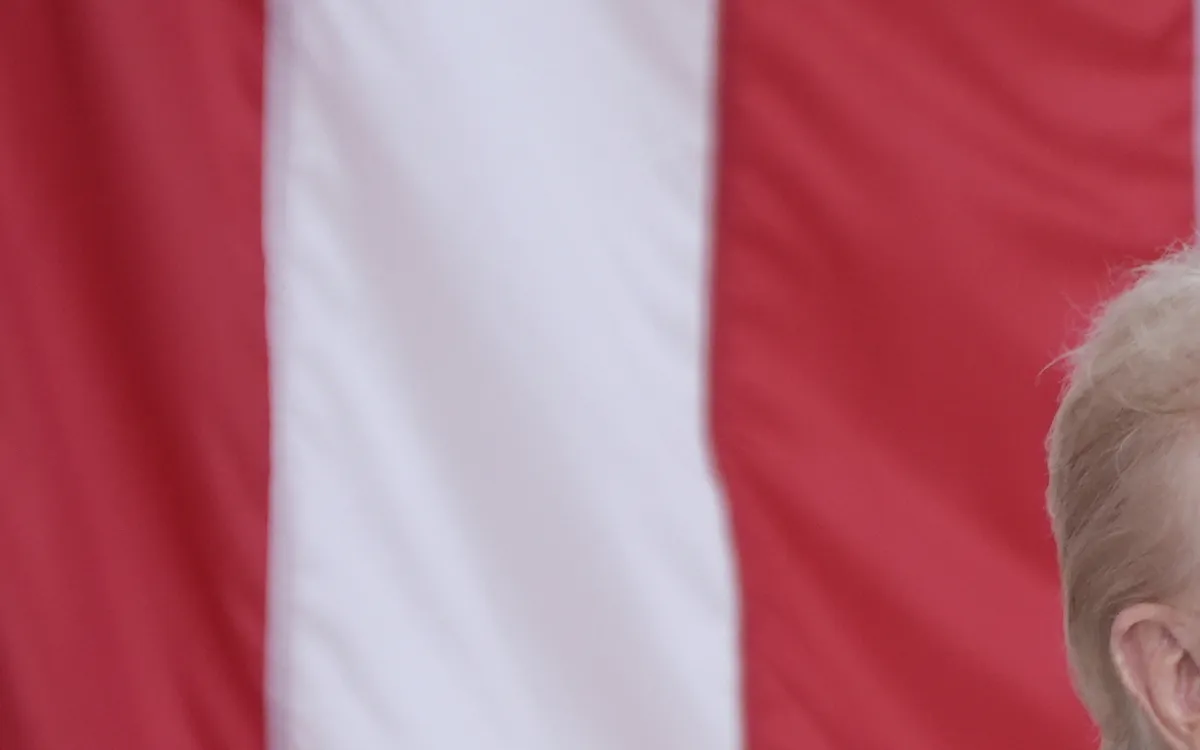
Former President Donald Trump is currently deliberating on whether to impose additional sanctions on Russia following President Vladimir Putin's escalation of military actions against Ukraine. According to four U.S. officials, this decision is of significant interest to Pro-Ukraine allies on Capitol Hill, who are cautiously urging the White House to act on Trump's threats. They are advocating for stronger support for Ukraine through the enactment of new sanctions against Moscow.
In a recent post on Truth Social, Trump asserted, “What Vladimir Putin doesn’t realize is that if it weren’t for me, lots of really bad things would have already happened to Russia, and I mean REALLY BAD. He’s playing with fire!” This statement reflects Trump's ongoing criticism of Putin, whom he described as having “gone absolutely CRAZY.” Despite these strong words, Trump's history shows a pattern of sporadic threats without significant follow-through, raising questions about his commitment to ratcheting up pressure on Moscow.
Kurt Volker, who served as Trump's special envoy to Ukraine, expressed skepticism about the former president's willingness to apply serious sanctions. “He has had so many opportunities to do it and he has always ducked,” Volker stated. This sentiment is echoed by many observers, who note that Trump's criticisms of Putin often come hand-in-hand with blame directed at other parties, including Ukrainian President Volodymyr Zelenskyy and current President Joe Biden.
Trump's press secretary, Karoline Leavitt, emphasized that Trump believes “this war is Joe Biden’s fault” and that he is keen on achieving a negotiated peace deal. While Trump has kept all options open regarding Russia, comments from figures close to him suggest that his patience with Putin may be waning. Fred Fleitz, a vice chair at the America First Policy Institute, hinted that Trump might soon transition from negotiations to imposing tough sanctions if a resolution is not reached.
During discussions with European leaders, Trump reportedly made excuses for Putin's reluctance to engage in peace talks, indicating a desire to avoid sanctions. Sources noted that Trump has expressed a preference for dialogue over punitive measures, although European allies are increasingly concerned that this approach may not yield results.
As the situation unfolds, several Republican lawmakers are pushing for Trump to take a more definitive stance on sanctions. Senate Republican leadership is backing a bipartisan sanctions bill but is awaiting a clear signal from Trump regarding his support. Without his endorsement, there are fears that such legislation could fail in the House, where leadership is cautious about crossing the former president.
Majority Leader John Thune has indicated that the sanctions bill would likely pass the Senate, although he is careful not to act prematurely. He stated, “If Russia doesn’t engage in serious diplomacy, the Senate will work with the administration to consider additional sanctions.” Similarly, Sen. John Barrasso stressed that the Senate would act decisively if Russia continues to stall.
Amid discussions among Republican senators, there is a growing desire to advance sanctions legislation, even in the absence of Trump's explicit approval. Sen. Kevin Cramer noted that he could see the sanctions bill being brought to the floor without Trump’s support, although he acknowledged that the leader would prefer a clear signal from the White House.
Sen. Lindsey Graham has also taken a proactive approach, working closely with the administration to develop a sanctions bill aimed at holding Putin accountable. He emphasized the Senate's independence and its commitment to addressing the situation in Ukraine.
European officials and analysts observing the situation suggest that Russia is attempting to decouple the Ukraine conflict from the broader U.S.-Russia relationship. Both Putin and Trump seem to recognize the potential for economic cooperation should peace talks succeed. Trump himself hinted at this possibility, stating, “Russia wants to do large-scale TRADE with the United States when this catastrophic ‘bloodbath’ is over, and I agree.”
As the situation continues to evolve, Trump's decisions regarding sanctions and diplomatic engagement with Russia will likely have significant implications for U.S. foreign policy and the ongoing conflict in Ukraine.